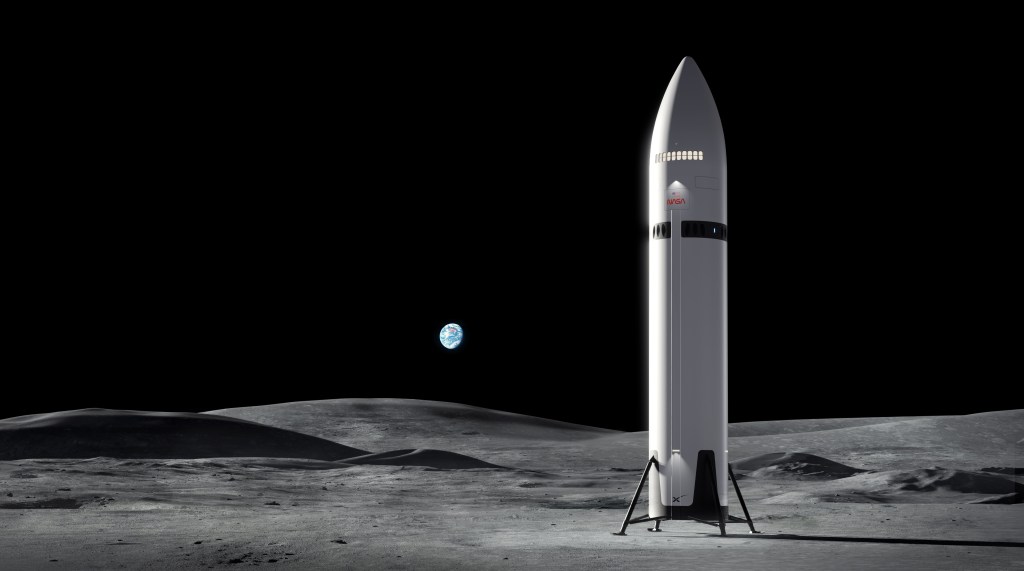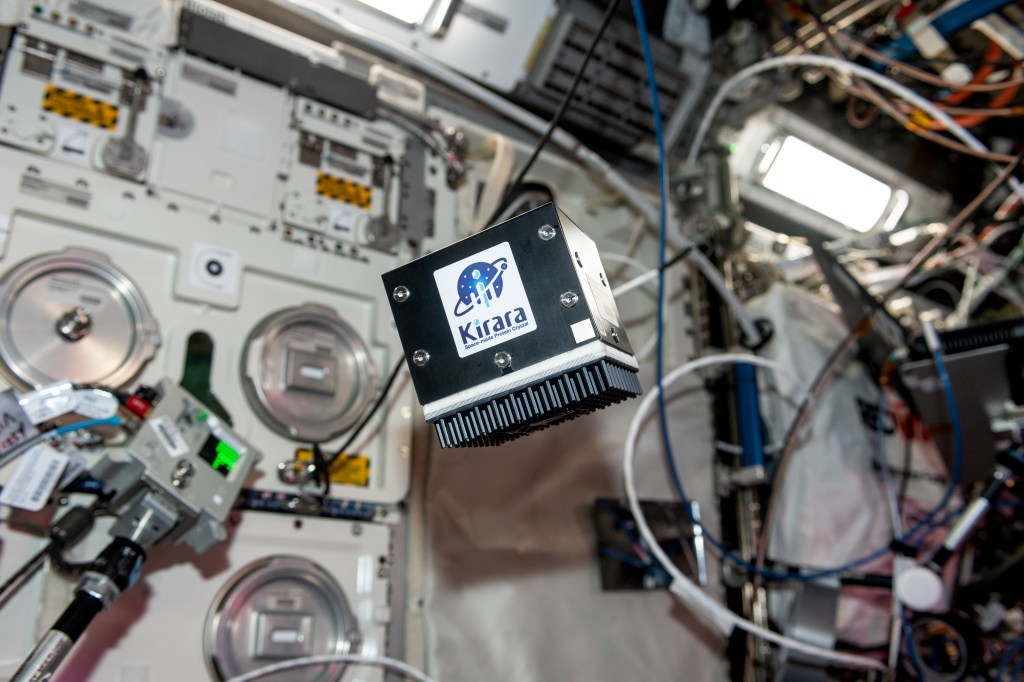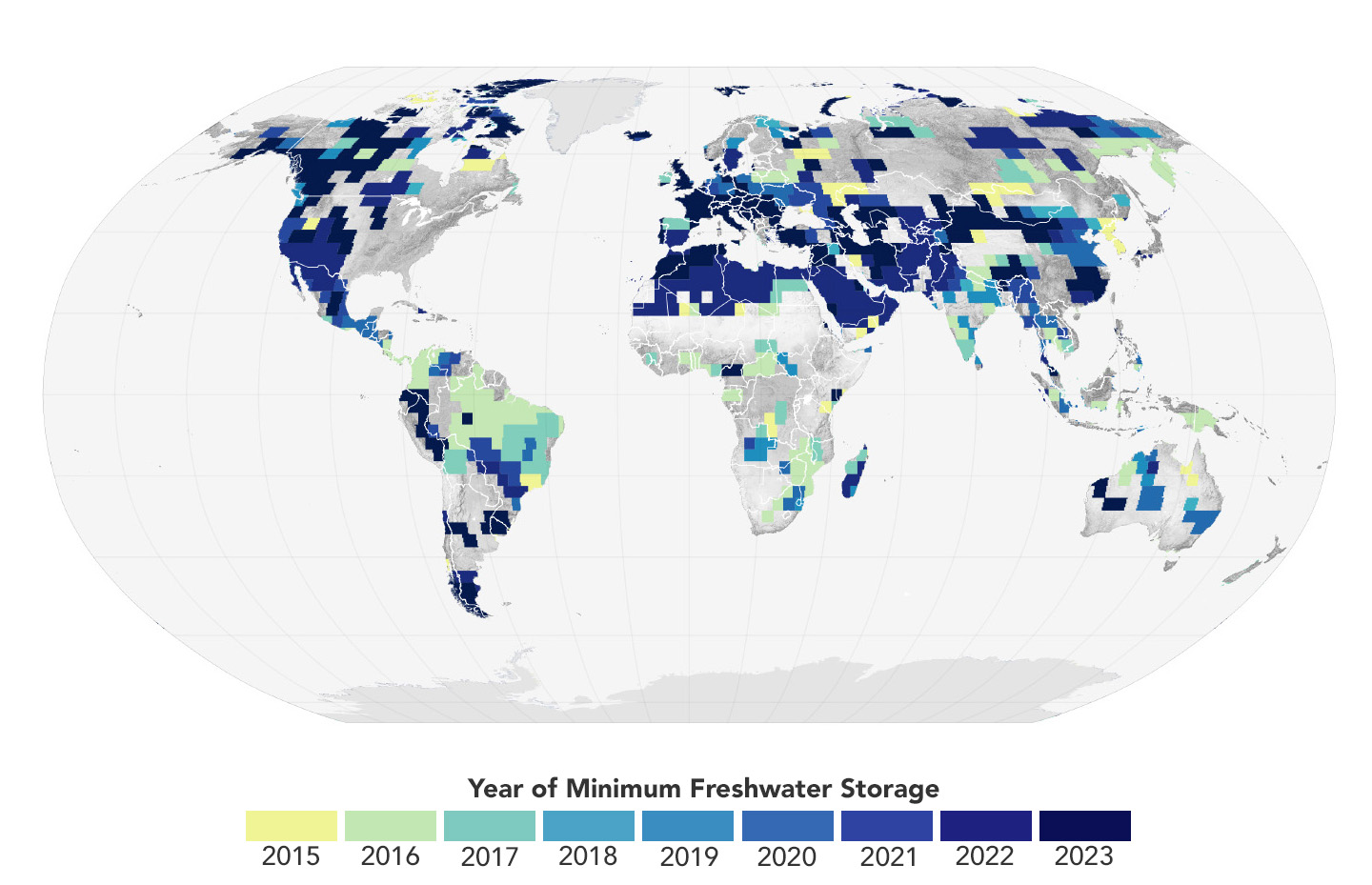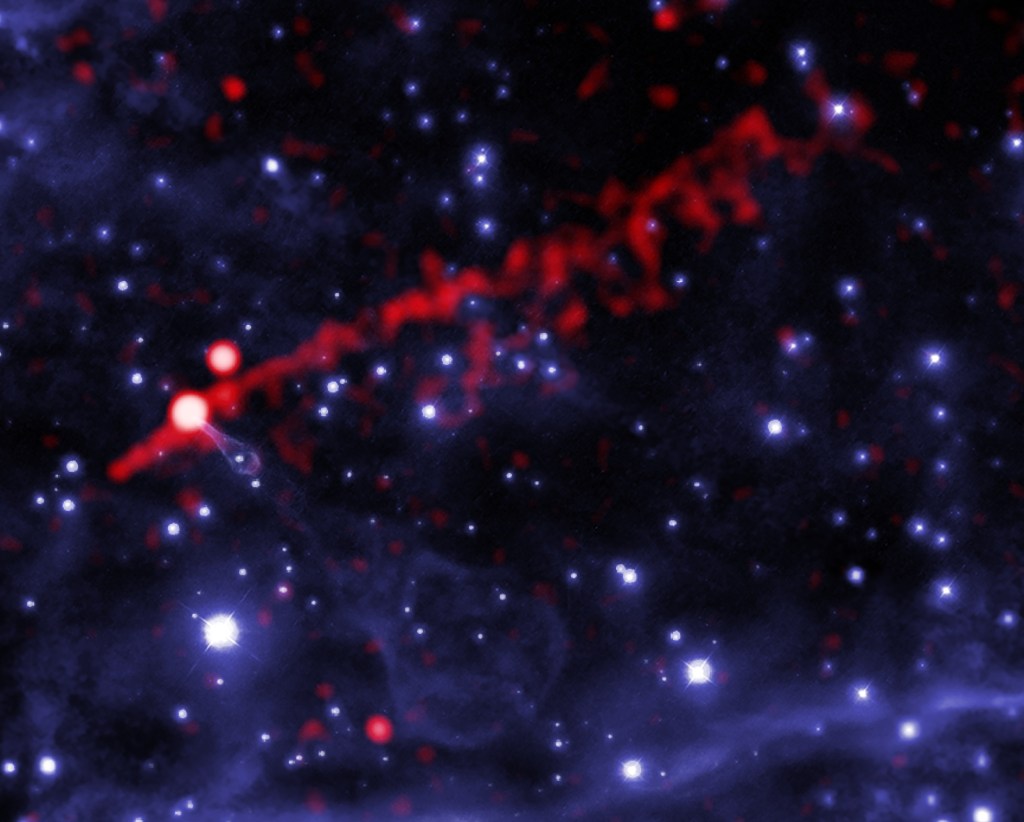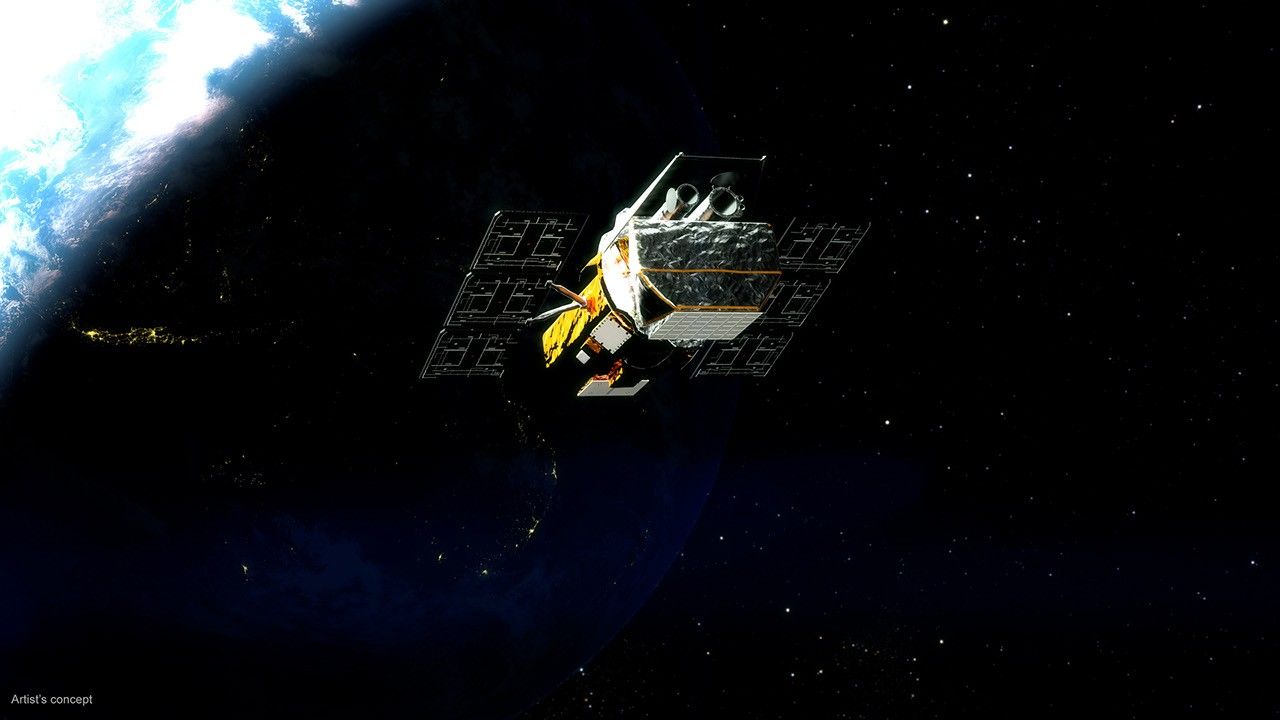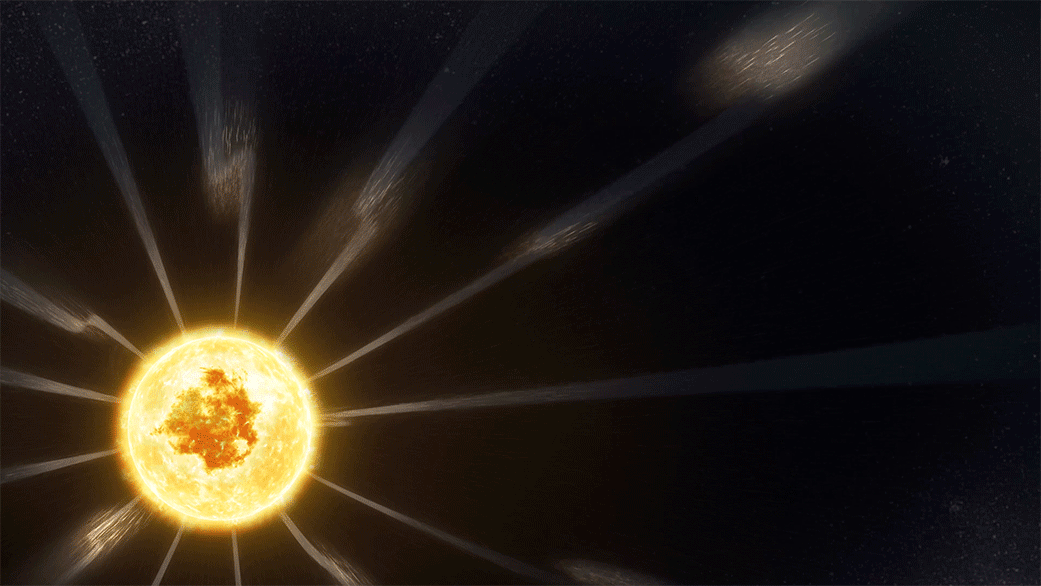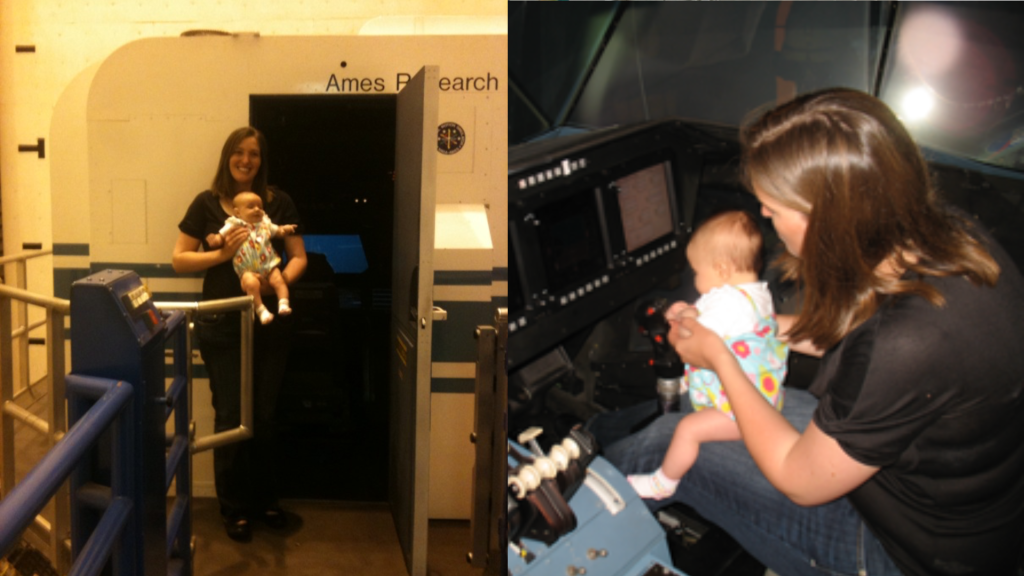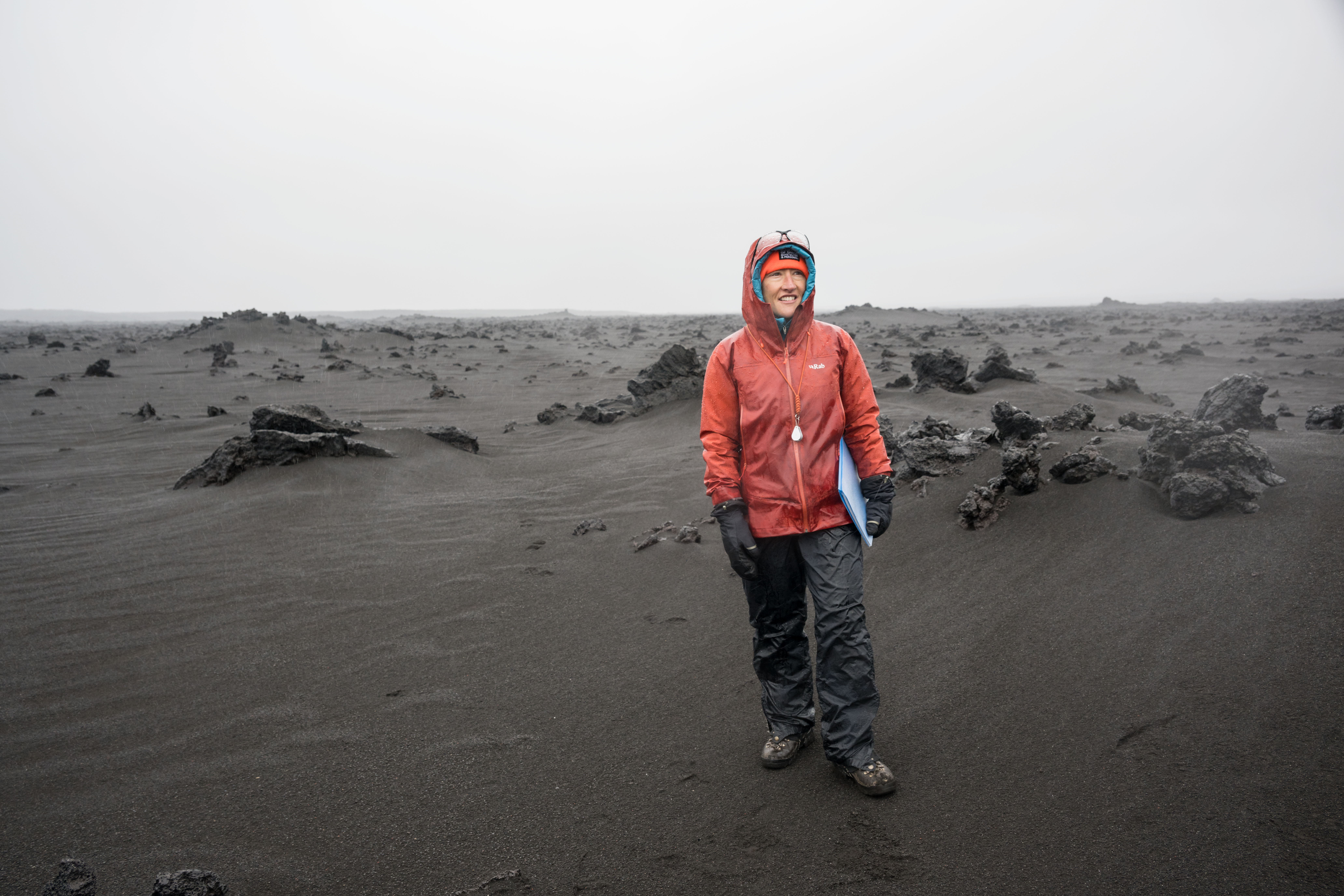Halfway to the Moon, on Sunday, Dec. 22, 1968, the Apollo 8 crew glimpsed Earth outside their windows from a never-before-seen vantage point, slowly decreasing in size as they cut away through the deep black. “It’s a beautiful, beautiful view,” Frank Borman said to Mission Control as the spacecraft sped onward toward its destination.
Part 3: The Far Side
Part 2: In the Beginning There Was Liftoff
Part 1: To the Moon and Back
Christmas morning of 1968, nine-and-a-half Moon orbits and 3 days, 17 hours and 17 seconds after launch, the Apollo 8 crew fired its service module engines to propel them out of lunar orbit and back to their families at home. Though the people on Earth were already celebrating an equally successful and trailblazing mission, NASA’s Mission Control in Houston refused to relax until its three ambassadors were safely back on the ground. Following a series of well-executed re-entry trajectory corrections, Apollo 8 tore through our atmosphere at higher speeds than humans had ever moved before, culminating in what Lovell called “a real fireball” in the re-entry audio recording.
Listen to the re-entry audio between Command Module Pilot Jim Lovell and Mission Control: MP3, NASA audio courtesy Kipp Teague.
Splashdown went as planned on the morning of Dec. 27. The crew, still confined to the Apollo capsule, awaited the Navy men aboard USS Yorktown, who were instructed to rendezvous with the battered spaceship rather than to return home for Christmas. As the astronauts waited to be lifted from the ill-tempered waters, Frank Borman made small talk with the helicopter crew. The sun began to diffuse the early morning darkness and the crew was pulled to safety, heralded on the Yorktown with cheers and cake and unimpeded patriotism. Back in Houston, cigars were lit, handshakes exchanged, and with unabashed enthusiasm a room stuffed with white button-downs and black ties exulted in the emotion of the moment, allowing themselves to take a breath and understand the gravity of their accomplishments.
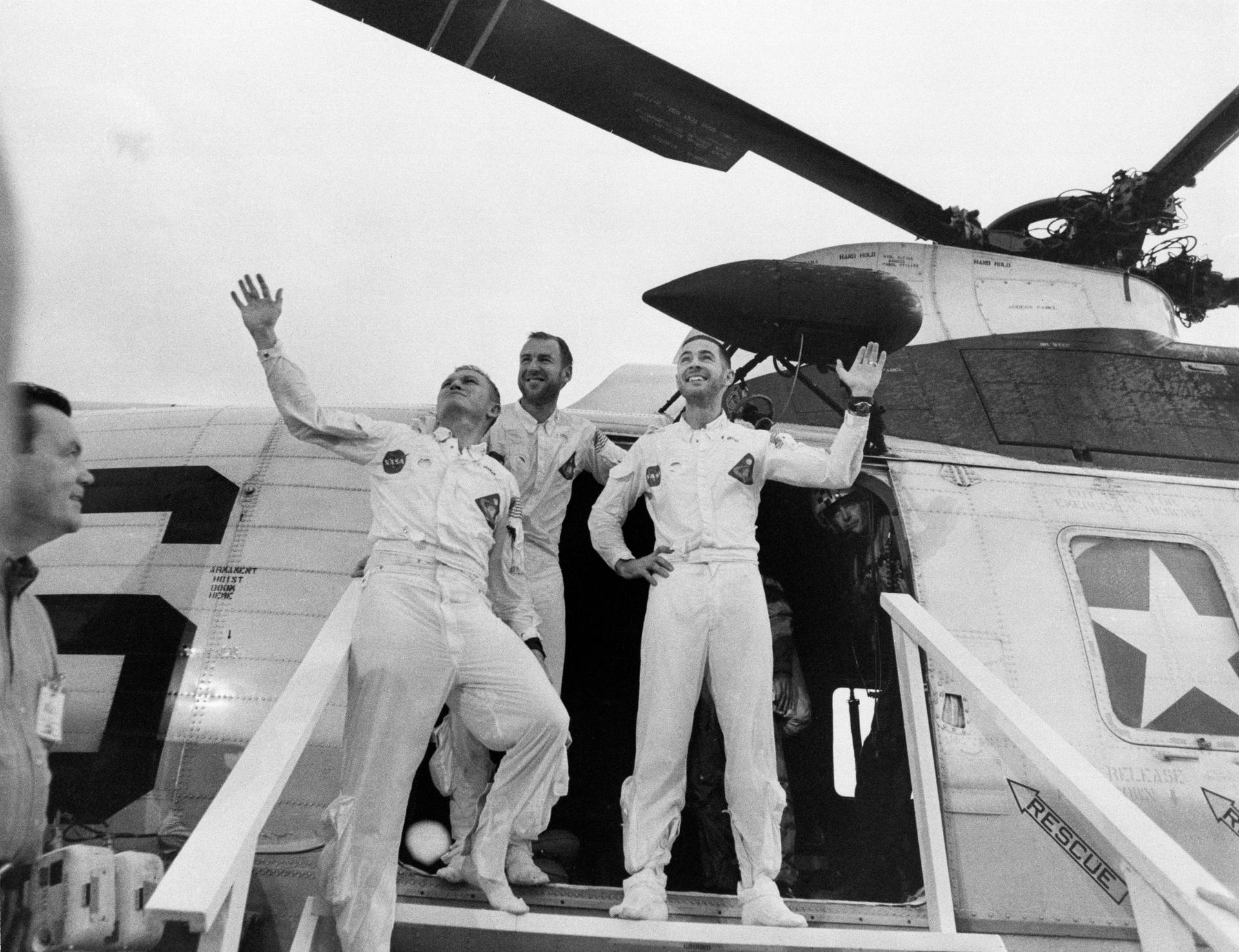
Not long after the crew had returned to land, they received a call from President Lyndon B. Johnson (MP3, audio courtesy LBJ Presidential Library), congratulating their efforts and relaying a message from the Soviets, who were “very felicitous about the welfare of the astronauts.” Acknowledging the scale of teamwork that made such a feat possible, Johnson said, “Now we all know that you men were supported by an elaborate technical apparatus and by many brilliant and devoted men and women here on the ground, and we salute all of them as we salute you.” He went on to dignify the bravery of the astronauts, saying “You’ve seen what man has really never seen before. You’ve taken us, taken all of us all over the world, into a new era.”





